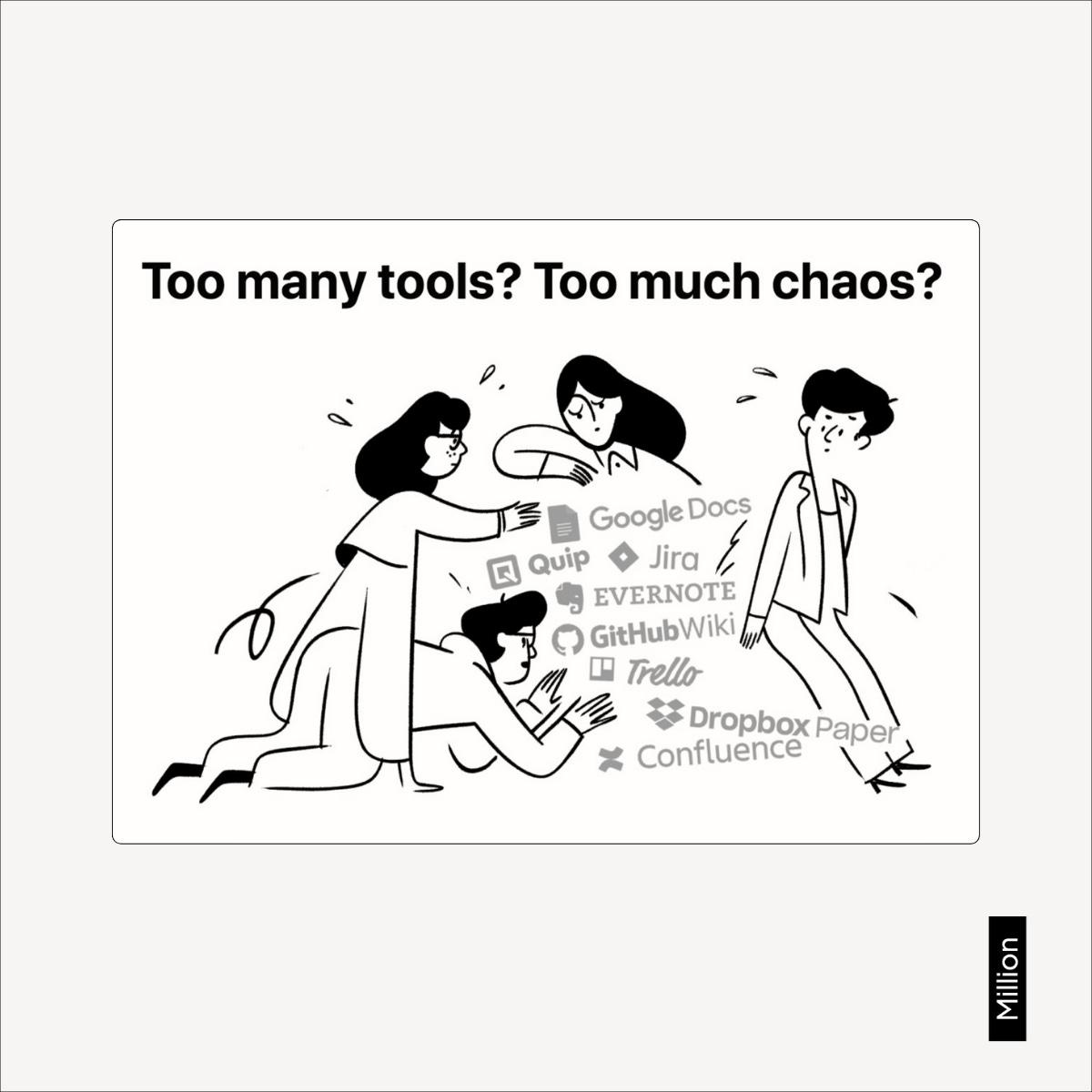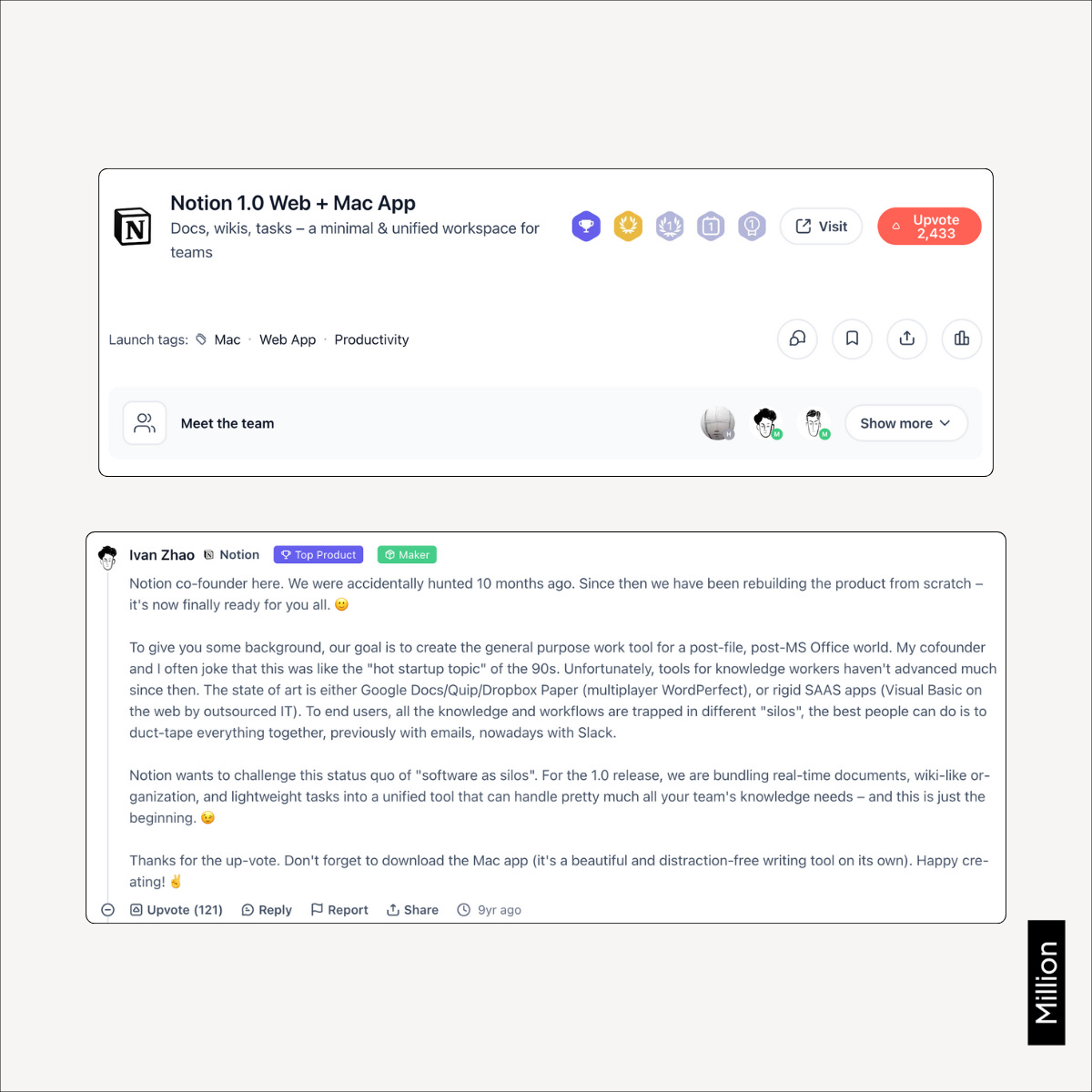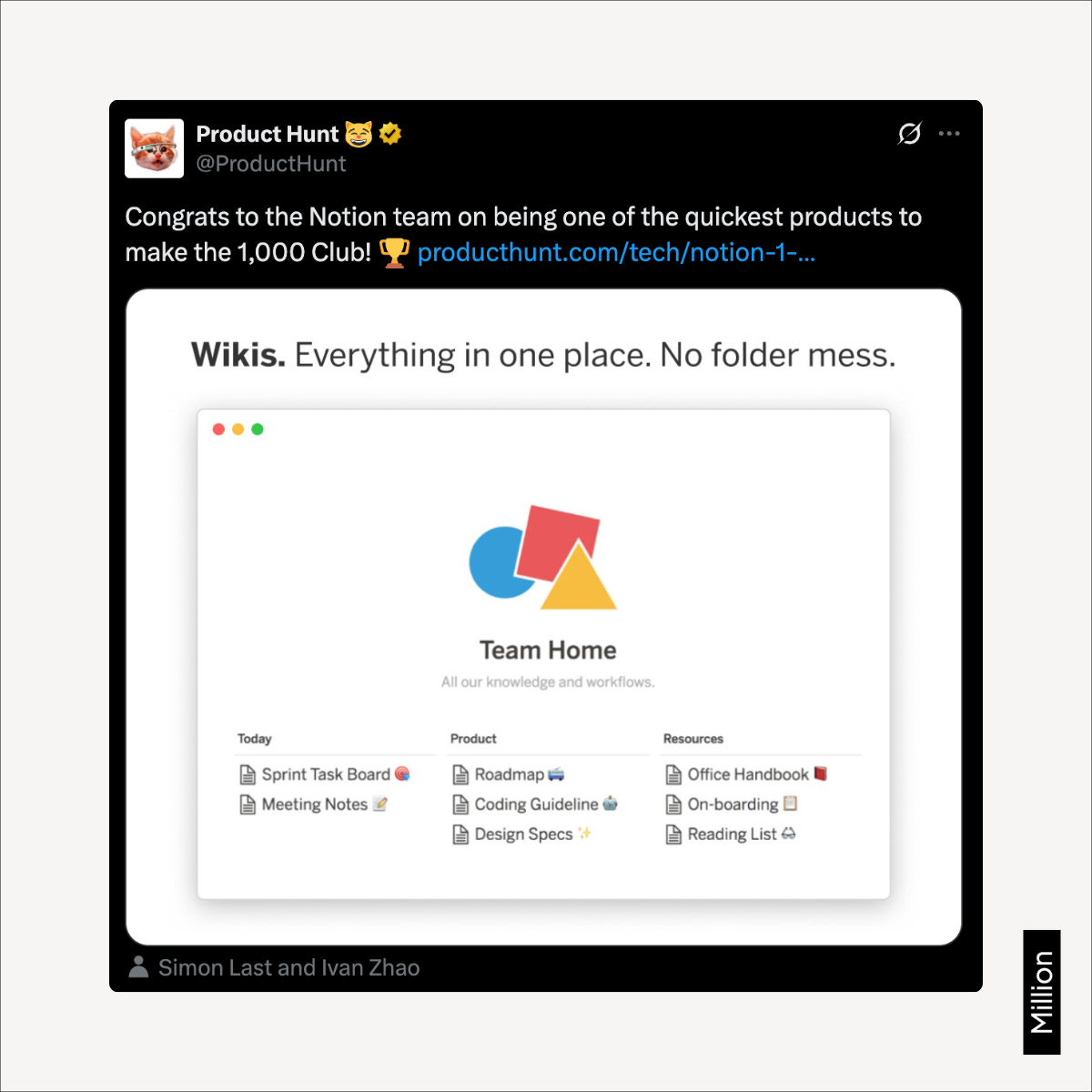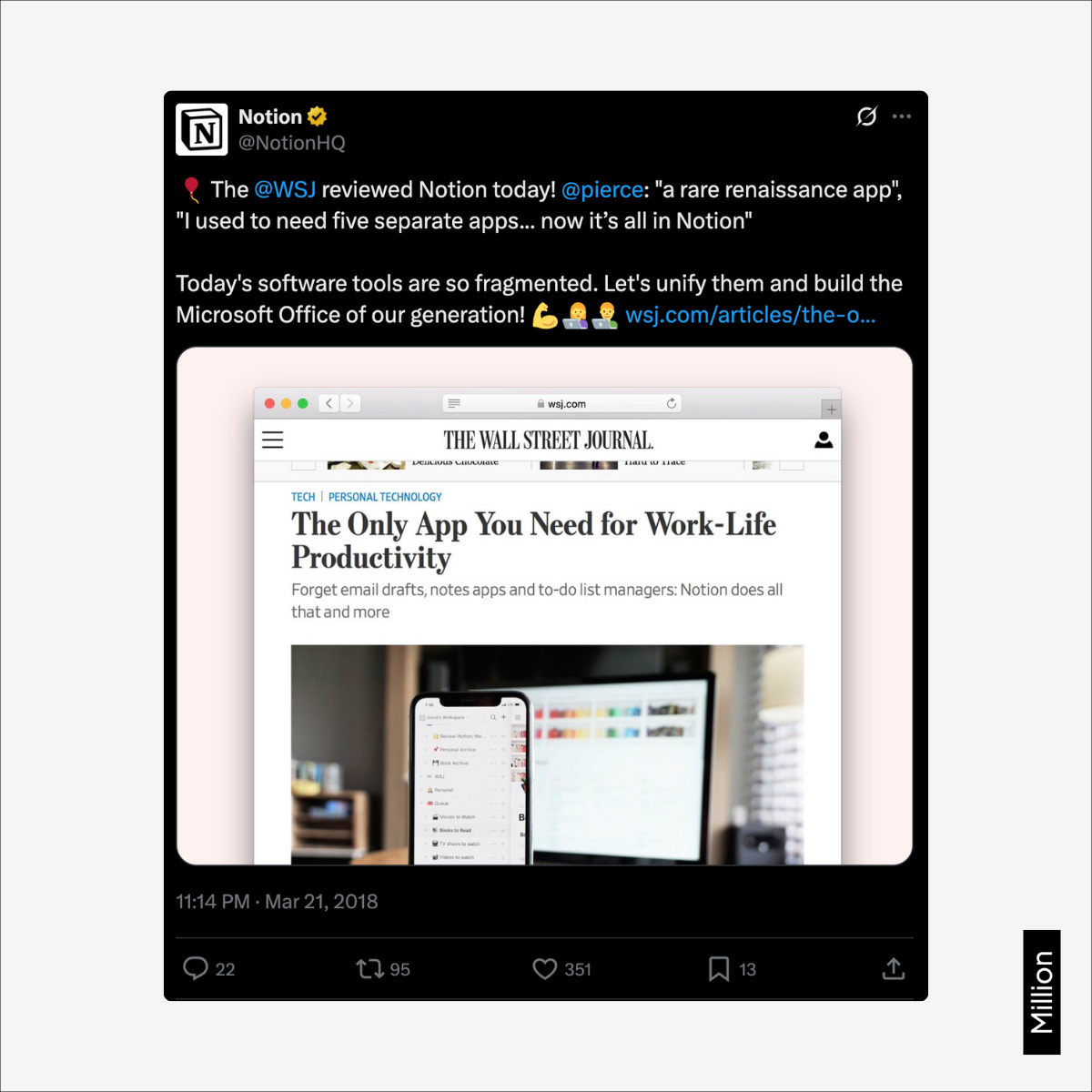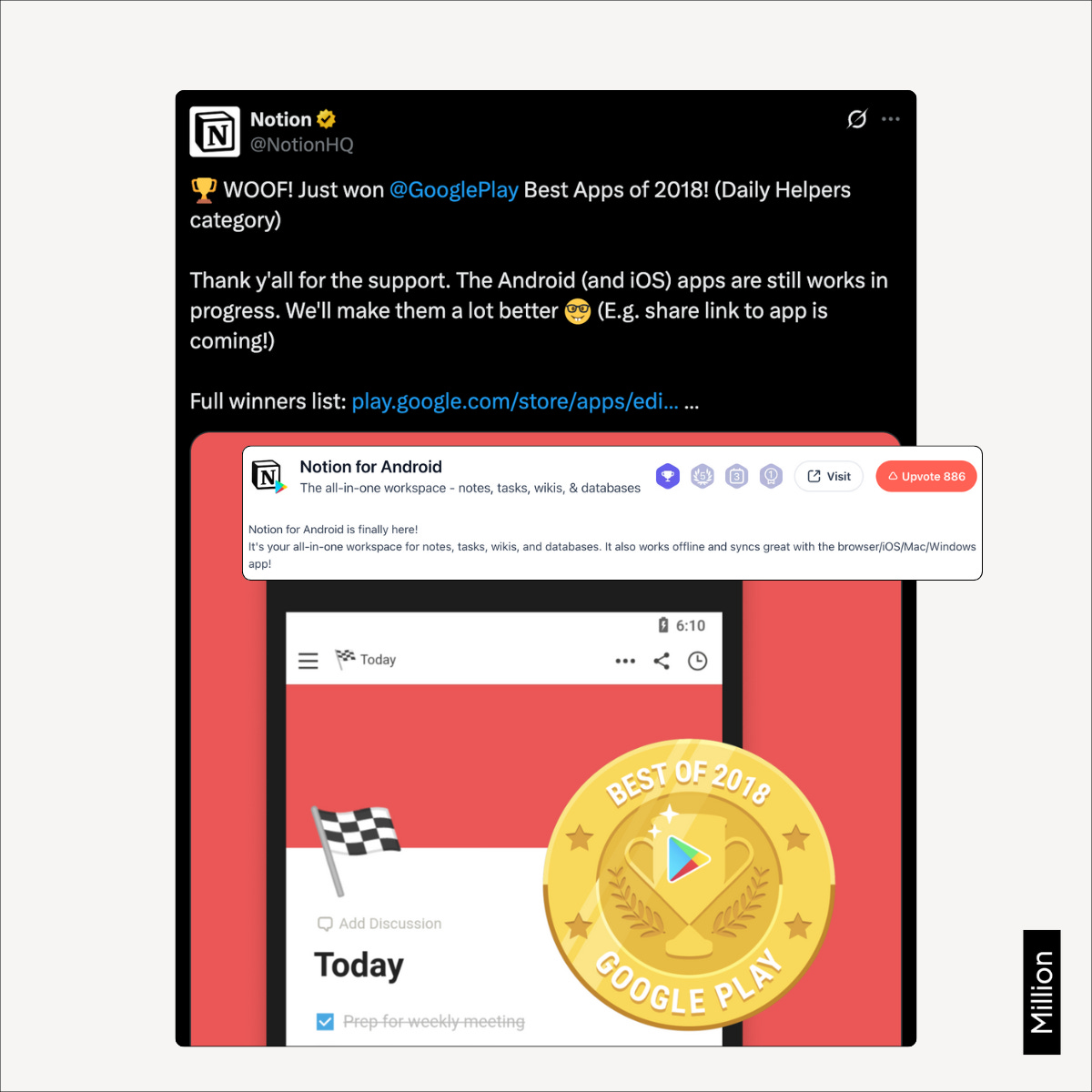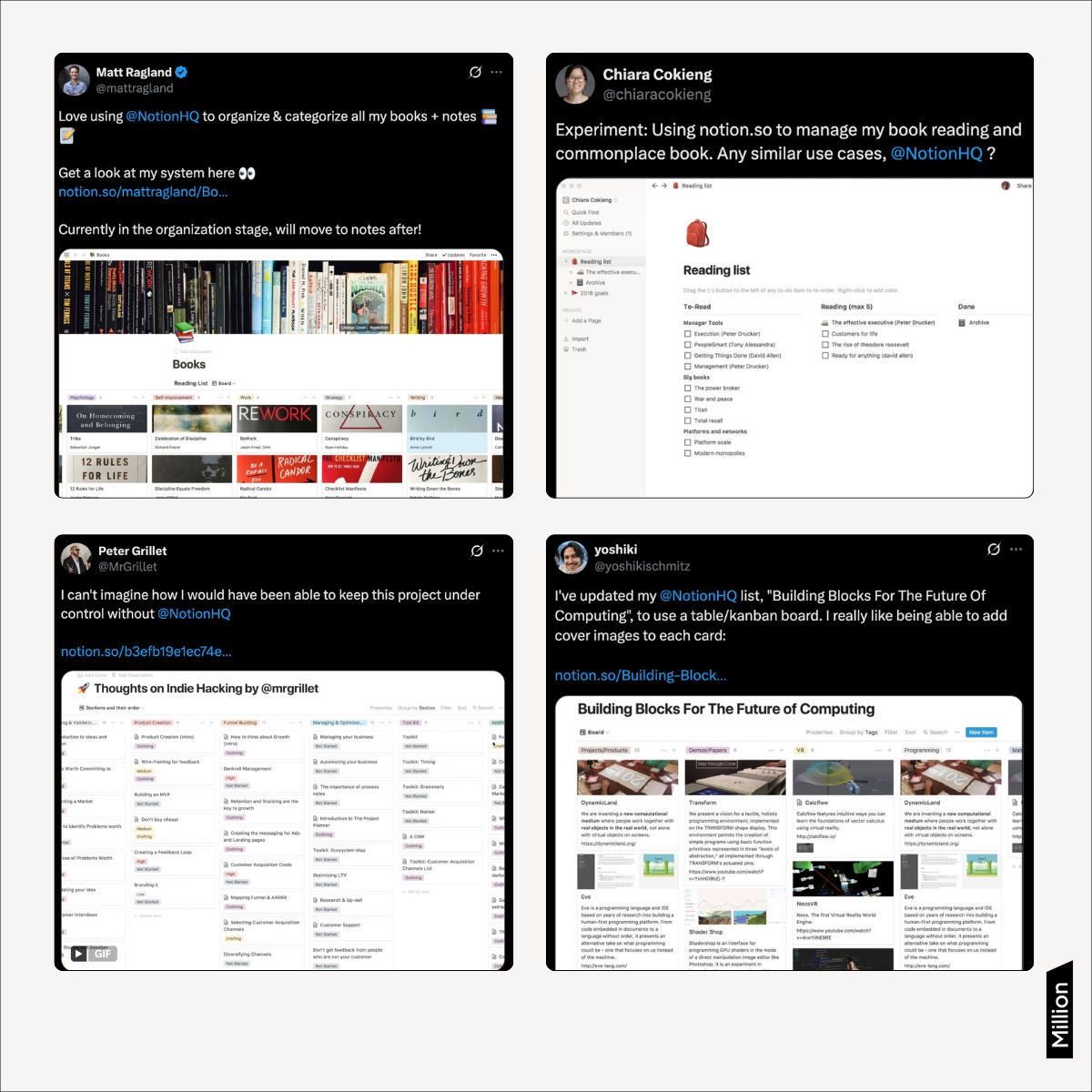Notion's First Million Story
How Notion found product-market fit and turned users into marketers
Hey, it’s Elan. Welcome to my newsletter on what worked for SaaS startups that reached their first $1M in ARR. If this is your first time here, sign up and be the first to read future posts.
This week, I’ve covered a product that I use myself on a daily basis: Notion. Even this post was written using it. I’m sure most of you reading this probably use it too, or have at least come across it once.
Even though I’ve been using it for years, I never really looked into how they got started and what helped them grow in the early days. This edition is all about how Notion got to their first million.
If you're expecting to read about Notion’s ambassador programs, TikTok, or community-led growth, this might disappoint you. I’ve focused on the scrappy early days. Let’s get into it.
About Notion
Notion is LEGO for software. They give you blocks to build whatever you need to solve your work problems.
Today, they're valued at $10 billion and it’s revenue is estimated to be $300 million, with more than 100 million users.
About the team
Ivan Zhao, influenced by early computing pioneers like Douglas Engelbart, he believed software should augment human thought - not just serve as a tool.
Simon Last, Notion’s co-founder and first engineer, shared Ivan’s obsession with building tools that empower non-programmers.
Their shared vision: software should be built like LEGO with simple blocks that anyone can use to create something powerful.
The Premise
The initial vision was to build an easy-to-use developer tool that would let anyone create software. But after two difficult years, they realized most people just didn’t care about building software.
So they pivoted to something people already cared about - productivity tools.
They launched Notion as a productivity software. But they kept the same core philosophy: empowering people to create what they need to get their work done.
Early-stage Marketing Strategy
Notion was positioned as a productivity platform, which meant any knowledge worker who cared about getting organised was their target audience.
In the early years their goal was to identify product market fit. Why?
When they entered the market, everything was siloed.
People used Google Docs to write
Slack/emails to collaborate and share
Used trello or to do apps to manage tasks
Notion challenged the status quo and wanted to become a centralized home for information and software.
The idea made sense. The question was whether people would understand and use it that way.
So how did they find product-market fit and get to their first million?
Product Hunt launches - Helped them validate the idea and attract early adopters
Word of mouth – Users didn’t just love the product, they became evangelists
Shareability – The product was inherently shareable by design
Referral programs – Notion empowered power users to invite their network
Product Hunt Launches
Product Hunt was one of the biggest early levers for Notion. They knew early adopters hang out there and used it strategically, even after an unexpected first launch.
Unexpected Launch
Not many people know this, but Product Hunt allows anybody to hunt and share your product even without you knowing.
In late 2015, someone posted Notion on Product Hunt without the team’s knowledge. They weren’t ready yet as the product was still in beta.
But the response was strong as people showed a lot of interest. It received 412 upvotes and became #3 Product of the Day.
To manage expectations, Ivan jumped in. He explained that they weren’t ready to launch and promised a proper release soon.
Notion 1.0 with Naval
In mid-2016, they had the first version of the product. This time they approached the product hunt launch strategically.
If you aren’t aware, Naval Ravikant was one of their early investors. The team decided to leverage Naval Ravikant’s social presence.
They launched Notion 1.0 using Naval’s Product Hunt profile as he had a big following there - around 20K.
That launch worked. Notion got over 2,500 upvotes and 3.5K reviews. It was one of the quickest product to make it to the 1,000 upvotes club.
In addition, it became Product of the Day, Week, and Month. It also won the Golden Kitty Award.
The Product Hunt launch helped them to get their first few thousand early adaptors.
Notion for iOS
They launched their app on Apple’s App Store in late 2017, and it was featured as App of the Day in December. This gave a further boost to product discovery among mobile users.
Apple selects App of the Day based on quality, innovation, and user experience.
Notion 2.0 Launches
They followed the same playbook for Notion 2.0 in 2018. Two years later, another Product Hunt launch.
It got more than 4,497 upvotes and 312 comments. Like the first time, it hit #1 product of the day, week, and month.
Even their Notion 2.0 launch tweet earned 1,000+ engagements.
As the icing on the cake, The Wall Street Journal published a product review after the 2.0 launch.
If the first launch helped them attract early adopters, the 2.0 launch validated product-market fit and marked their entry into the mass market.
Notion for Android
In mid-2018, they launched their Android app. It was something frequently requested by early adopters at the time. It opened up another acquisition channel, and the app went on to be named App of the Year 2018 on the Google Play Store.
By the end of 2018, just six months after launch, the app had reached 100K installs.
Word of Mouth
To grow fast, people need to love your product enough to share it. That’s what happened with Notion.
Their early users didn’t just use the product. They evangelized it.
Finding a gem
People couldn’t resist sharing Notion once they discovered it. It felt like a hidden gem - replacing 3 to 4 other tools with one beautifully crafted experience.
Self Expression
Notion let users organize their work the way they wanted. It made people want to show off their organization skills through their Notion workspaces.
They shared screenshots and URLs of their workspaces.
Suggestions
On social forums, whenever someone asked for note-taking or task app suggestions, Notion’s power users were quick to recommend it.
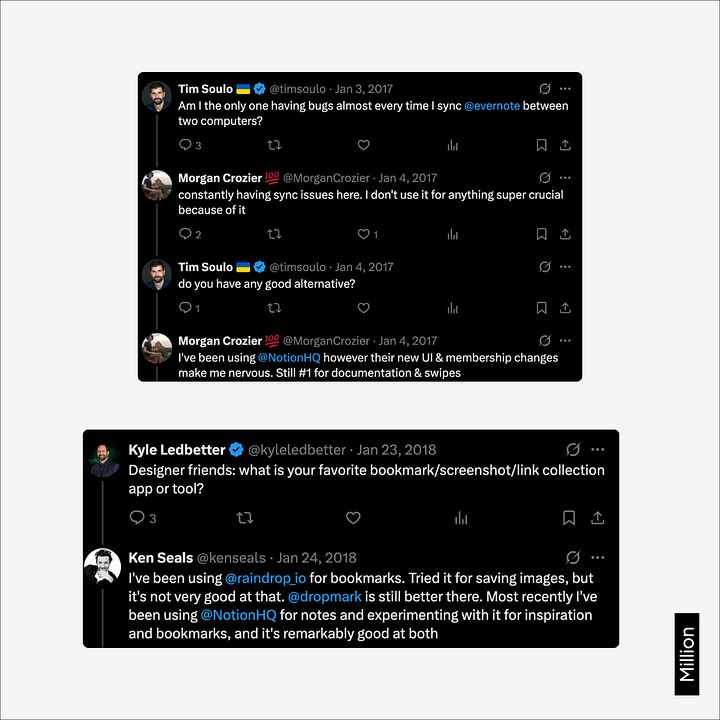
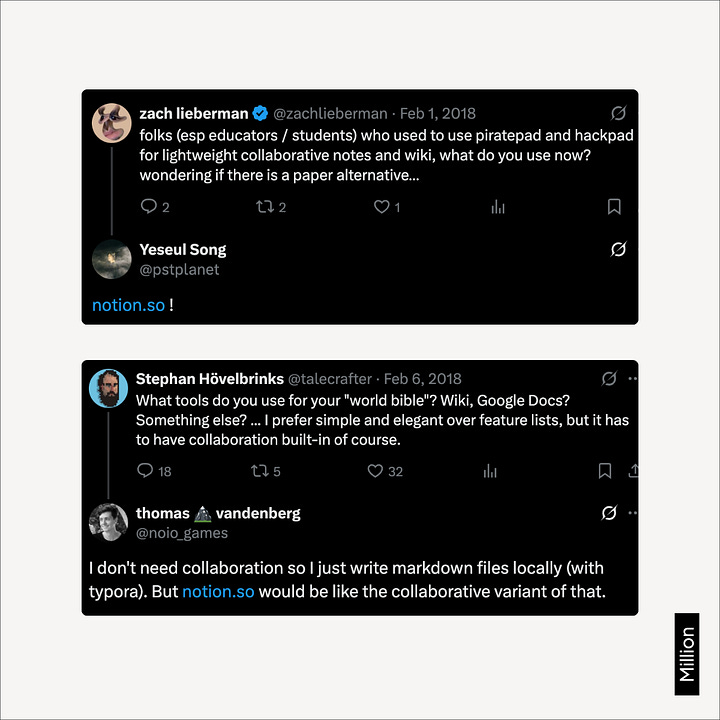
This is what a great product can do. It makes people market for you.
Shareability
Notion was shareable by design.
It let users share their pages using public URLs. These pages came with Notion’s domain and a CTA like “Made with Notion” or “Get Notion for Free” at the top.
A few common ways people used it:
Sharing information: People shared notes, summaries, and internal docs with others. It became the easiest way to distribute structured knowledge.


Notion was used to share information Sharing templates: Users created their own planners, trackers, and journals, and were happy to share them with others.



Users sharing Notion template
Every shared page created more awareness. It was a user-generated content strategy on steroids.
Referral Program
Notion introduced a referral program in early 2017 aimed at power users. Instead of cash or gift cards, they offered something more aligned with their product, free credits and unlimited blocks.
The program was simple: refer a friend, earn credits. Credits could then be used to unlock pro features.
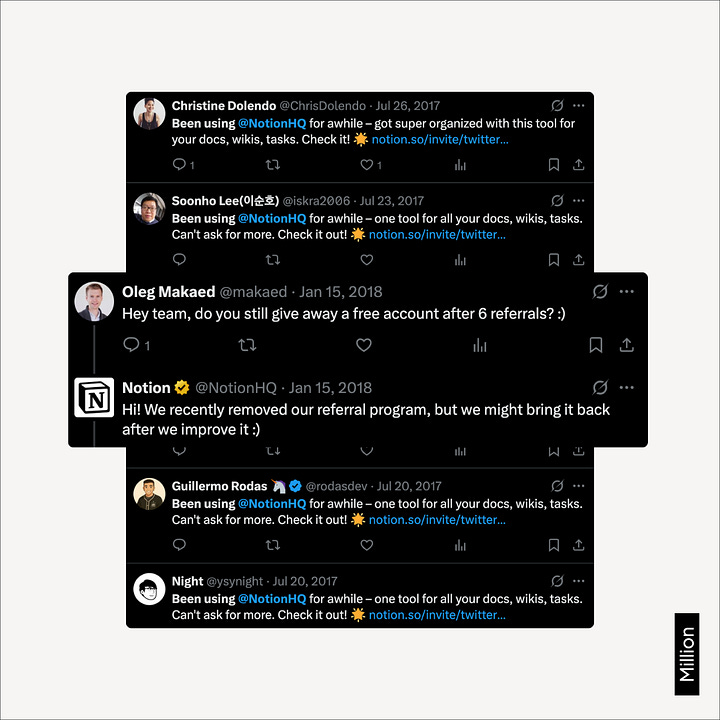
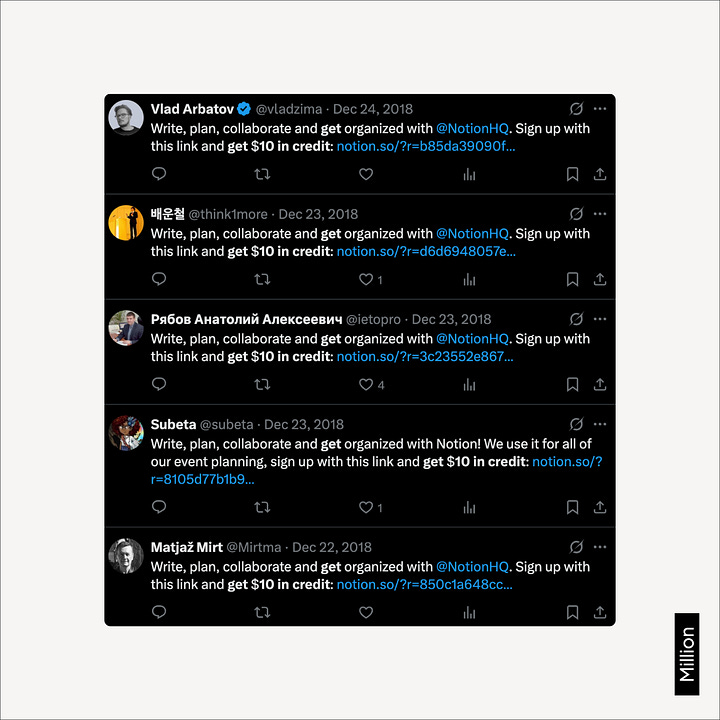
It turned users into evangelists by rewarding them with more of what they already loved using.
Growth Loop
Notion’s growth loop was simple but powerful:
New kind of product: It broke the status quo. One tool to replace many.
Reach early adopters: Notion used PH to reach early adaptors.
Great product experience: Simple on the surface but offered depth.
Evangelism: Users became advocates.
Sharability: Public pages made spreading the product effortless.
Referrals: Amplified word of mouth.
The more people used it, the more they shared. The more they shared, the more it grew.
Closing Thoughts
Notion’s growth story is a great example of what a great product combined with thoughtful marketing can achieve.
They strategically launched it in product hunt and once they gained initial traction with early adaptors, two things happened:
Users organically shared what they built with Notion - to show off and to share knowledge.
Notion amplified that love by introducing a referral program.
They gave people a better way to work - and made them want to talk about it.





